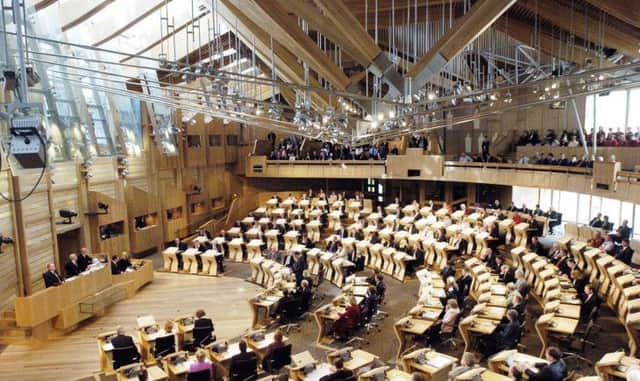Councils demand devolution for England


Councils called for the same freedoms offered to Holyrood to be given to communities south of the border.
The Local Government Association said without change the English risked becoming “second-class citizens” and proposals for an English Parliament or so-called English votes for English laws would not deliver “true devolution”.
Advertisement
Hide AdAdvertisement
Hide AdThere is growing concern among some council leaders that proposed changes to Commons rules over how MPs vote will be used to suggest that calls for English devolution have been answered and that a wider discussion of how taxes are raised and where decisions are taken is unnecessary.
The coalition has sealed a series of agreements which have seen control over some Government spending shifted to a local level including ‘devolution deals’ recently struck with Greater Manchester and South Yorkshire and expected shortly with West Yorkshire.
But all moves to shift powers away from London have so far kept Whitehall in ultimate control and there are also worries among rural and smaller urban council leaders that the focus of devolution has been on major cities.
Wakefield Council leader Peter Box, who is also chairman of the West Yorkshire Combined Authority, backed the LGA’s calls for a more fundamental review.
Advertisement
Hide AdAdvertisement
Hide AdHe said: “I have felt this is what is needed for some time.
“What we have had has been piecemeal with combined authorities, city regions, growth deals and devolution deals with elected mayors or not.
“The truth is it is a mess.
“We need to get out of the habit of tinkering with the system and look seriously at the relationship, not just between central and local government but also how local government works within economic areas.”
Senior council figures in the region differ on the detail of how devolution in England could work but there is broad agreement that control over housing, planning, transport and skills are needed if they are to have a significant impact on the local economy.
Advertisement
Hide AdAdvertisement
Hide AdThere is also an appetite in some quarters to take more control over how taxes are set with council tax, capital gains tax and business rates among those seen as those most easily administered at a local or regional level.
Coun Julie Dore, leader of Sheffield City Council, said: “Devolving new powers to Scotland is hugely significant for the UK and, hopefully, a further step in the road towards devolution of local powers for England’s major towns and cities like Sheffield.
“As our newly-launched International Economic Commission demonstrates, Sheffield is an ambitious city with a global vision. We have something very special here, and we want the city region to have even more power to shape its own future and to fulfil its huge potential.
“I would like to see Sheffield, and other major cities across the UK, given the opportunity to create the jobs, growth and prosperity that we need.”
Advertisement
Hide AdAdvertisement
Hide AdThe Prime Minister was in Edinburgh yesterday as draft clauses which should form the basis of new devolution legislation were published. The proposals are “the right resting place” for devolution arrangements, Mr Cameron said.
He told Scots: “If I am your prime minister after May 7, you will get in full these measures set out in a document, in a Bill in the first Queen’s Speech of any government I lead.
“But there will also be very clearly set out rules put in place, so that English MPs have the decisive say on issues that affect only England.”